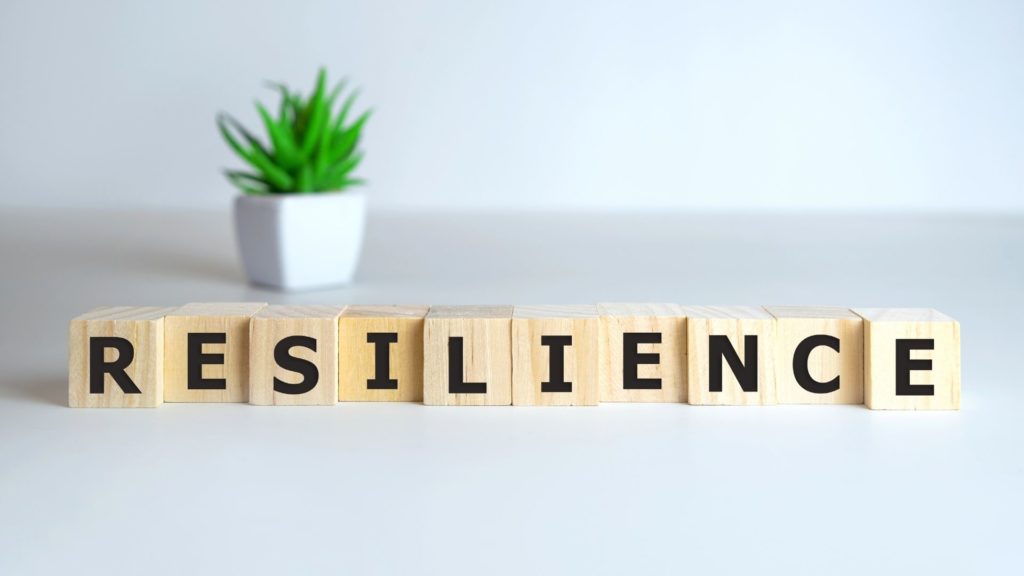10 lockdown lessons to turn vulnerability into irrepressible resilience
Welcome to my new monthly series of guest blogs, where I invite inspiring writers from my network to feature their work on my site. And who better to kick off the series than this month’s Retirement Rebel, Rosemary Bointon, who tweets as Superaging Adventure and blogs as Long Life Fun Life. Rosemary, over to you…
Did lockdown and sheltering in place make you worried about your vulnerability? Not just to the virus but to all the other events that seem set to present us with life-changing problems. We really need our resilience to keep us bubbling and cheerful these days.
Resilience is the ability to bounce back after a setback, whether minor or devastating. But where does that ability come from?
It comes from our experiences – and most recently that’s been lockdown. Maybe it’s time to look at the positive things to come out of a miserable experience.
Fed up with being labelled vulnerable, I set myself to investigating the multitude of lessons to be learned from lockdown. How did friends and neighbours cope with all the stresses and strains of isolation and disruption of daily life? How did their resilience help them stay cheerful and happy? Could you and I learn those lessons of resilience and apply them to ourselves?

Here are 10 lessons you can practise to develop irrepressible resilience.
1. Winning the mental fight with resilience
My friend, Jemima, felt ill. She got into a panic, because she thought it was the dreaded virus. Have you felt the same? She imagined the worst. And whilst she was busy imagining being on a ventilator, her husband lost his job.
So how did Jemima deal with it? She told me that when she felt she was facing her own mortality, her imagination ran overtime with all the worst things that could happen. But when her husband had to cope with his difficulties, she felt she had to dig deep for the strength to look for solutions for him and the family.
First, she took positive action to sort out her own illness. It wasn’t coronavirus – whew! She started using positive thinking and affirmations. She visualised herself getting better. She worked on thinking up solutions for her husband and to protect their financial situation. As her health improved, she took on some freelance jobs working remotely. Her husband took a temporary job making phone calls to isolated older people and together they have managed to keep the family afloat.
You can do what Jemima did: feeling vulnerable, you can practise the habit of looking for solutions and positive endings. And that powers your mental resilience for when you really need it.
2. Gallows humour boosts your resilience sky high
A great strategy is to look for jokes and fun videos to cheer yourself up. There are so many coronavirus and other jokes circulating on the internet. People get up to the funniest things and it can be really entertaining to watch the antics.
Laughing at silly jokes releases fear and tension, makes the coronavirus feel less scary and will improve your mental resilience. My 94 year old friend, Eric, can’t leave his house at all, but he’s sending out daily emails full of jokes, limericks and funny stories to keep up the spirits of others. And he’s improving his own resilience at the same time.
3. Power up your immune system
Improving your diet is a quick way to power up your immune system. Your body works better if you fuel it with loads of nutritious fresh fruit and vegetables. Top candidates are berries and leafy greens like spinach. Frozen ones are great too.

Make sure you get lots of omega 3 fats – fish are a great source and provide you with protein too. They help you fight the aging effects of inflammation.
My on-line friend Antonio is a great advocate of maximising nutrition as a way to keep healthy. He says if you do, you’re improving your immune system and your resilience to illness of whatever kind.
4. Bring in the reinforcements to win your battles
Taking vitamin and mineral supplements these days is controversial, but they can help in some circumstances and especially when you’re undergoing additional stress.
Staying indoors can mean you don’t get enough Vitamin D3 from sunlight. When tests showed my husband was low on Vitamin D3, on medical advice, he started to take supplements plus Vitamin K2. Vitamin D3 delivers calcium into your bones and keeps them strong. Bone marrow is where both your red and white blood cells get made – essential for a stronger immune system and better health all round.
Other possible supplements include vitamin C, zinc, magnesium and potassium, all of which are essential to keep you healthy and full of energy.
Check with your physician what’s right for you as many supplements have adverse effects. None of these will stop you getting nasty bugs, but they may provide your immune system with the resilience to get you through to great health again.
5. Keeping yourself in good shape
Just because the gyms aren’t yet open or you still feel too vulnerable to exercise outside doesn’t mean giving up all exercise. There are loads of on-line classes you could do: yoga, tai chi, aerobics, line dancing. Or dig out that old exercise CD stuck at the back of the drawer and give it a whirl.
I’m doing my Alex’s on-line yoga (and feel as though I’m creaking a bit, but it’s really helping!!). Dance during the adverts on TV. See if you can clock up 10k steps walking round the block or a local park. Use your shopping bags and tinned or bottled foodstuffs as weights to do a bit of strength work.
Exercise is essential to physical and emotional resilience, keeping you strong and more cheerful!

6. Give yourself a break from the stress
Exercising can push your stress aside and replace it with feel good hormones. But meditation silences it by accepting it.
To get going, listen to an on-line meditation which gives you instructions on how to do it. You’ll quickly pick up what works for you.
And therein lies the blessing, because meditation helps you to control your reactions to stress as it happens. Stress coach Sue teaches how to reach the calm place where you’ll learn to react in a more emotionally resilient way and break the downward spiral of panic, bad decisions and depression.
7. Sleep: the best bridge between despair and hope
As sleep expert Matthew Walker says, ‘The best bridge between despair and hope is a good night’s sleep’.
So do everything you can to get a good night’s sleep. Try eating your main meal at lunchtime so that you don’t end up eating late. No more caffeine after, say, 2pm or alcohol in the couple of hours before you go to bed. Cut out blue light late at night. (That’s a tough one for me.)
Train yourself into regular sleep habits to assure your nightly 7 to 8 hours. Your rewards: both physical and emotional resilience, energy and hope.
8. Feeling united with the world
One of the good things that has emerged from our current crisis is the huge increase in social interaction – even if it is remote.
Our phones and laptops are buzzing with messages and arrangements to make contact on Zoom, Skype or Whatsapp, so, dive in and participate. You can send messages to old friends and take part in family events on-line.

Join in with your local community too. My friend Cathy is leading a session for Creative Mornings on visual journaling. You’ll find a local branch near you for sure.
It’s a lot of fun and you’ll both give and receive support. That’s your contribution to community resilience and your reward is your own stronger resilience, so get social and interact.
9. Give yourself a reason to get up in the morning
We’re designed to find life happier if we have a purpose and meaning in life. Find a project that makes you feel good and get stuck into it.
Learn to cook to improve your diet. Learn to meditate or do yoga to bring down the stress. Do your garden, reorganise your house, learn a language. The choice is amazingly wide.
Maybe you found new things to do whilst you were lockdown – like learning how to use technology such as Zoom. Now you can use your new skill to give you more resilience for dealing with the stresses that are surely following. You’ve set yourself up in a virtuous circle of resilience.
10. Flex your resilience muscles
Don’t forget to notice all the good things that came out of your enforced isolation. Those links with old friends that you’ve renewed, the exercise habit that you finally cracked, the new hobby you took up.
Practise looking for things for which you’re grateful. Start a journal to record them. Once you start looking, you see them everywhere. And you can always ask for help when you need it. Remember that it gives other people purpose and meaning to help you with your problems. You’re helping them cope with their crisis.
Take the positive steps from vulnerability to resilience
You needed resilience to cope with the vulnerabilities we all felt from lockdown, the pandemic and its economic consequences. Now imagine how you apply the lessons you learned to make your resilience irrepressible.
Imagine that you’ve faced your fears for the future and worked out better methods of dealing with them. You saw yourself coping cheerfully with the constraints of lockdown, and now you see yourself coping with the stresses to come.

Feel the happiness you’ve gained already from the lessons you’ve learned and see yourself full of irrepressible good humour, bouncing back from the next difficult life-event. Whatever comes next, you’ve got the resilience to bounce through it and find the good in it. So, take your first steps now to become the irrepressibly resilient person of your future. Try one idea, then another and reap the rewards of resilience, physically, mentally and socially.
Stay safe, keep well, keep resilient.
Books by George Jerjian
Dare to Discover Your Purpose is an innovative new online retirement course designed to help you change the way you feel about this important but often misunderstood life stage.
 Rosemary Bointon helps older people work out what to do now to live longer, in better health with more fun and adventures. She’s a certified content writer.
Rosemary Bointon helps older people work out what to do now to live longer, in better health with more fun and adventures. She’s a certified content writer.
You can find her at https://writer.me/rosemary-bointon or on her own blog at www.longlifefunlife.com and on Facebook, Twitter, Instagram and LinkedIn.
- A Journey of Transformation: What’s Next for George Jerjian - February 14, 2025
- My 2024 Adventure: Around The World In 80 Days - December 1, 2023
- Change In Retirement – Embracing The Challenges - November 20, 2023